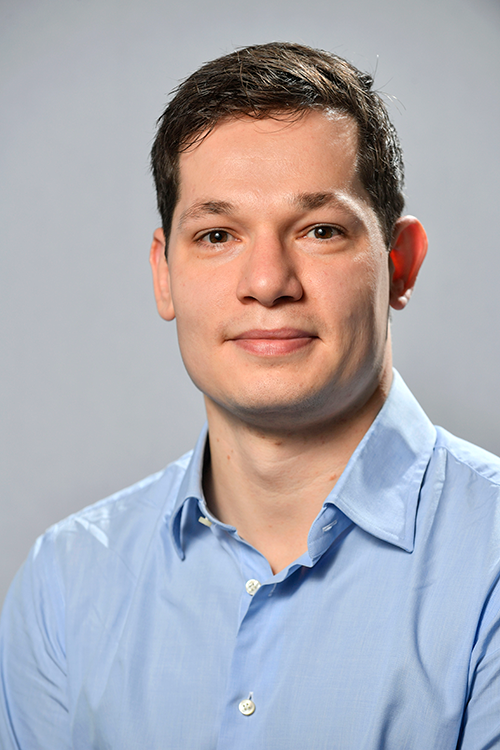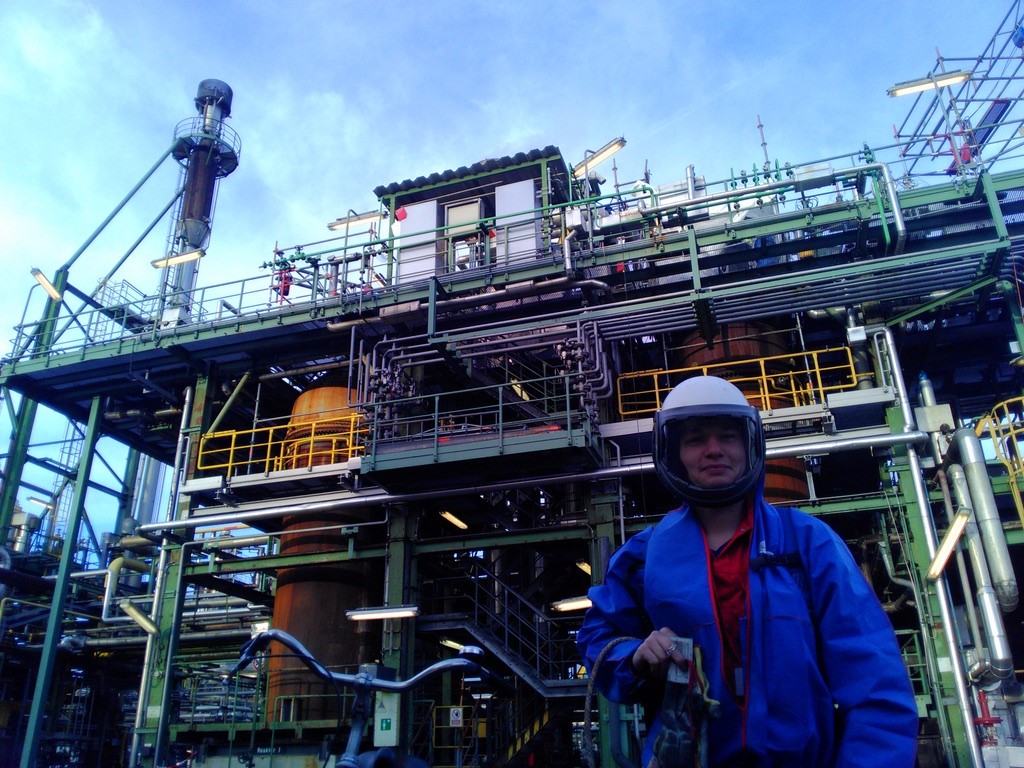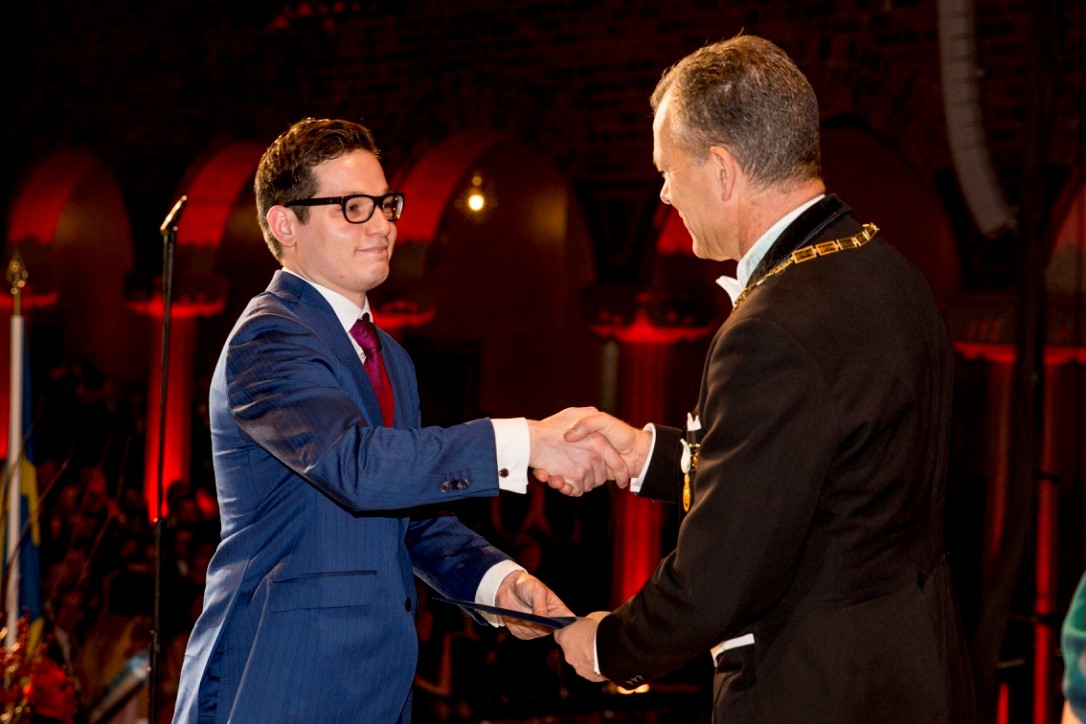Bart moved to the Netherlands where he works for the oil and gas company Shell
Bart van Krimpen graduated from the master’s programme in Chemical Engineering for Energy and the Environment in 2014. He now works as a Support Engineer at Shell.

Hi Bart, what are you working with at the moment?
I currently work at Shell in the Manufacturing Support and Excellence Organization. In this role I provide technology support to the Gasification Units, which Shell operates in their Pernis and Rheinland refineries.
As a Support Engineer I work on both short-term and long-term activities. An example of a short-term activity is the re-routing of a product or intermediate stream through the refinery because one of the units normally taking this product or intermediate stream is unavailable. In this case you readily need to identify alternative outlets for the stream that can no longer be routed to the normal outlet without causing too much impact on refinery operation. These kinds of tasks can be challenging and stressful when carrying them out, but very rewarding when you solve the puzzle.
Long-term activities can consist of root-cause analyses, for example if there is unexpected damage to the equipment. As residue gasification typically processes the heaviest streams within a refinery there is a high chance that fouling will occur. Understanding and monitoring these processes is not straightforward. Because many refineries further increase their upgrading and take in different types of crude oils, the quality and composition of the feedstock to the gasification units is continuously changing. In some cases, this can cause unexpected side-effects that need to be understood to prevent them from recurring. In my current job, investigation of fouling issues plays a big role as well as the development of monitoring to prevent re-occurrence. In these types of activities, you often work together in a multidisciplinary team where each team member has their own field of expertise. In this way you also tend to learn a lot about other disciplines than process engineering such as reliability and corrosion engineering.
In addition to the above, an important part of this role is to ensure that knowledge and best practices are shared between the operating sites and with the central organization. It can be very rewarding to see that your efforts at one of the locations can be copied to other operators, thereby increasing the safety, reliability or profitability of multiple sites.
Have you worked with anything else since you graduated?
I started with Shell as an intern, writing my thesis on the absorption of Carbonyl Sulphides with Shell Absorption liquids in the Gas Processing Department. After graduating from KTH I joined the Gasification Department in Shell’s Project and Technology organization. In the first two years I’ve supported projects related to Gasification both in Shell and with third parties, as Shell is also a licensor of this process. This role offered a large number of different activities ranging from design studies for third parties that wanted to modernize their refinery which would result in heavier gasification feed stocks; safety studies for older units that wanted to ensure that they still operate according to the modern safety standards as well as the deployment of new technologies. One example is the deployment of intelligent pigging for the inspection of the gasification waste heat boiler. With this technology we’re able to fully inspect the coils of this boiler instead of taking only spot measurements. This technology was already applied to pipelines with large diameters but not to the small diameter coils in this application. After a successful test, this is now part of a regular inspection programme.
After two years in this central organization I moved to the Rheinland Refinery in Germany where I became a Unit Technologist for the Gasification, Hydrogen Manufacturing & Methanol Synthesis Unit. In this role I provided day-to-day support to the Production Unit, long-term monitoring and inspection of equipment during maintenance stops, and supervision when loading the catalyst. After spending time in the Gasification Department, it was very rewarding to apply what I had learnt out in the field, and to assist operations in safely operating the unit while also maximizing the throughput and run length. I would really recommend working in a refinery as no single day is the same and you’re continuously developing yourself as there are always challenges that need to be overcome. Because of the complexity of refinery and chemical operations you’re always exposed to a number of technologies - both very old and modern. In the refinery where I worked for example, 300 bar hydrogen compressors from the 1930s were still being operated, whereas inspections of chimneys was performed using drones. As an engineer it is really fascinating to see such a wide range of technologies being deployed side by side.

Why did you choose this programme at KTH?
The reason for choosing this programme was the fact that it had a strong focus on energy. Besides the typical chemical engineering courses, many courses related to different forms of energy generation and usage were offered. Because of my interest in the energy industry this was exactly what I was looking for in a master’s programme after my bachelor’s studies in Chemical Engineering at Delft University of Technology. Another reason for choosing this program was the option to tailor your programme to your own interests, as there were many elective courses to choose from in addition to the mandatory part of the programme.
Are there any specific insights you acquired during your studies that have been particularly useful for you in your career?
The programme contained a significant number of courses around electrochemistry, e.g. the use of batteries and electrolysis. At the start of my career these topics did not really relate to my day-to-day job. Over the last years, however, there has been a surge of interest in these technologies, and the Rheinland Refinery will soon start-up their first electrolyser for hydrogen generation. This is one example of how the broad range offered by KTH will be very useful in the future when a wide range of technologies will be used for energy generation as well as fuel & chemical production.
What is your best memory from your time at KTH?
By far this was the graduation ceremony held in Stockholm City Hall, in the same room as the Noble Prize ceremony. After two years of studying it was very rewarding to receive your degree in such a beautiful location. I’m still grateful to KTH for this wonderful evening. Instead of just being handed your degree there was a full ceremony including choirs and opera singers. This by far outranked any other graduation ceremony I’ve attended either as a guest or a student.

What are your plans for the future?
In the future I would like to return to an operating site and work on the implementation of new technologies. The focus on reducing CO2 emissions and growth of renewable energies will pose many challenges but also opportunities. For example, I’m really looking forward to including the gasification of biomass into the refinery as an addition or alternative to the gasification of refinery residue, or including hydrogen produced through electrolysis in the refinery hydrogen balance. Apart from that there will most likely be a shift from the production of fuels towards the production of chemicals. As gasification yields CO and H2 building blocks I expect to see a shift in products that will be made with this technology.
What would you say to a student thinking of applying for this programme?
Based on my own experiences I can fully recommend both the programme, the university and the city. I think this programme offers a very good basis if you want to work in the chemical industry but also if you want to continue doing research at university. With this programme you can touch on very different topics and you can really tailor the programme to your interests. Besides that, the university offers a great atmosphere with great professors who teach their courses with passion. Combined with living in a beautiful green city like Stockholm, there are actually very few reasons not to apply for this programme.
